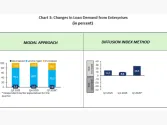
Indonesia may up-size retail Islamic bond issuance
Indonesia may increase the issuance of its retail Islamic debt papers after seeing strong demand from local individual investors.
“There may be an up-size,” Rahmat Waluyanto, director general of the Finance Ministry’s debt management office, told The Jakarta Post.
About 14,000 investors have ordered Rp 11.1 trillion or US$1.2 billion worth of the Islamic bonds within the first six days of the offering. It is allready nearing selling agents’ more than Rp 13 trillion commitment.
“Several agents have revised their targets. The target could still change,” Rahmat said. The agents comprise 13 banks and 11 securities firms, including Bank Central Asia, Bank Mandiri, Citibank, OCBC NISP, Danareksa Sekuritas and Trimegah Securities.
Retail sukuk has been one of several investment instruments that individual investors find attractive given comparable, or sometimes higher, returns compared with bank deposits’ average rates of between 4 and 7 percent per year.
This shows that individual investors have become risk takers because the yield is trending down. But this clearly shows that our middle class segment has the appetite to invest their money,” Standard Chartered Bank economist Eric Sugandi told the Post.
The government’s plan to up-size issuance of the retail sukuk might be part of its plan to increase net bond issuance this year by about Rp 25 trillion to Rp 159.6 trillion to plug the growing budget, Eric said.
Eri Haryanto, head of public service and investor relations at the Finance Ministry’s debt management office, said that public enthusiasm on SR004 might be because the SR001, the first government Islamic bonds for individual investors, matured on Feb. 25.
“So SR001 investors are looking for another investment instrument,” Eri added.
The government collected Rp 5.6 trillion from the first retail sukuk issuance in 2009, while in 2010 and 2011, it respectively raised Rp 8 trillion and Rp 7.34 trillion.
Funds raised from the sukuk sales would be used to finance infrastructure projects stipulated in the 2012 state budget, including roads, buildings bridges and small-scale expenditures of around Rp 1 to Rp 2 billion each, according to Eri.














